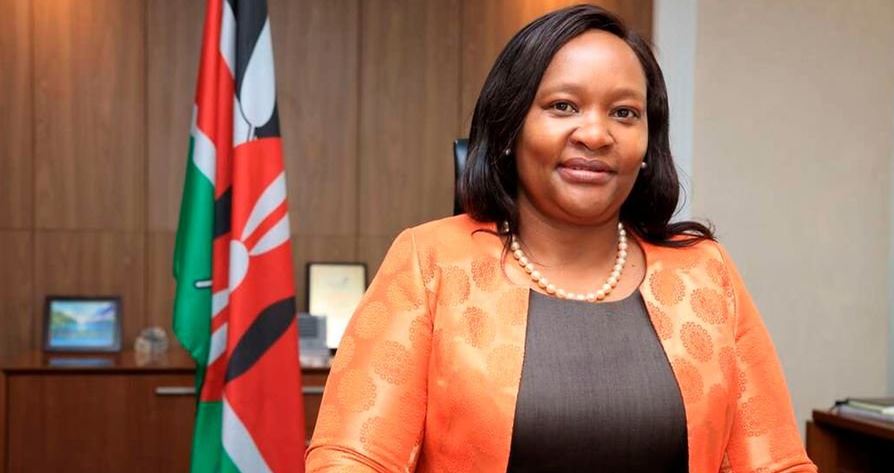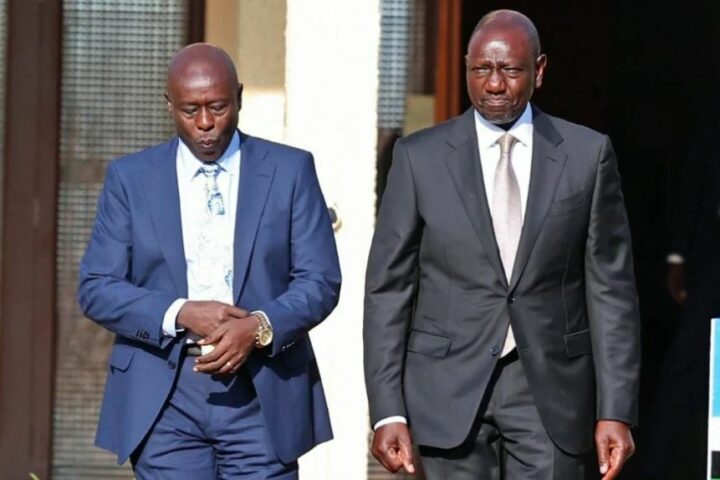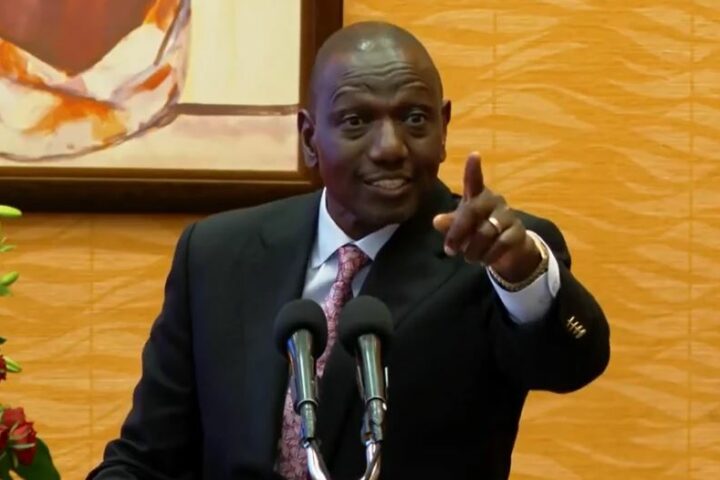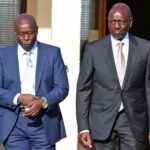
She fielded questions from the public via Sunday Nation.
As a consequence of the ongoing Covid-19 pandemic, the Ministry of Energy in October 2020 had indicated its intention to declare force majeure on power generation contracts due to a drop in demand. How has this gone down with Kengen? Joseph Kiambi, Mwea
Indeed, Covid-19 affected businesses in Kenya and the world over. We saw a drop in demand for electricity, but this was temporary and lasted for only a few months. We are glad that with the gradual re-opening of the economy, electricity demand has actually increased and surpassed the pre-Covid-19 levels. In March, the peak demand has risen to 1,980MW compared to 1,926MW in February 2020. We are hoping for continued economic recovery and a better future.
You are barely six months into your second term as the CEO of Kengen. What are your priorities before you exit? Bevin Amoke, Mlolongo
We are looking at achieving several things, including growth in electricity generation capacity. Some of the projects we expect to commission include the 172MW Olkaria V geothermal project, which is already complete and due for official opening. The others include 83MW Olkaria I unit 6 expected to be completed this year and a 140MW Public-Private Partnership project, which is currently under procurement.
As you are aware, we are also pushing on with our diversification strategy and I look forward to delivering two projects currently under implementation in Ethiopia and one in Djibouti. We are also exploring other opportunities to extend our footprint in Africa while helping other countries on the continent to develop their green energy resources.
On corporate social responsibility, I intend to complete and handover the Naivasha Level 5 Hospital, which is currently under construction and is on target for completion mid this year.
I would like to be remembered as the CEO who actualised the company’s diversification strategy and expanded its operations to other African countries.
At every opportune moment, Kenya Power cites the high purchase price of electricity from Kengen and other electricity generators. What is the true position of these blame games? Komen Moris, Eldoret
Power pricing is an elaborate process, and the full mandate for pricing lies with the regulator, the Energy and Petroleum Regulatory Authority (EPRA).
For our part as Kengen, we have deliberately focused on renewable energy, which in the long run will lower the cost of power and also reduce the cost of doing business.
On average, KenGen today sells electricity to the off-taker at Sh5.40 per kWh. We are aware that this is the cheapest generation cost in the country.
Kengen currently generates about 254MW through thermal sources, accounting for about 15 percent of its total installed capacity. Already the government has talked about phasing out thermal power. If the government directive on thermal power comes to pass, what would be the future of the thermal plants that Kengen operates? Otieno Abanja, Kericho
We fully support the move to embrace renewable and clean energy. This is why today, close to 90 per cent of our installed capacity is from green sources. Going forward, we intend to convert some of our existing thermal power plants in Kipevu to gas. This will ensure that the plants remain on the grid going forward.
Kengen was among the few Nairobi Stock Exchange-listed companies that gave dividends to its shareholders, including myself last year, despite the economic meltdown caused by the effects of the Covid-19 pandemic. What measures have you put in place to ensure that the company continues to make profits? Dan Murugu, Nakuru
At Kengen, we are very strong on corporate governance. We recognise that good corporate governance practices form the strong foundation of any sustainable organisation. We have, therefore, engrained ethical and accountability practices in the building blocks of our growing business to safeguard the interests of our shareholders and financial health of the company. Our Board of Directors provides the requisite oversight over our business and have in place policies that guide the running of Kengen. At the same time, we are focussing on diversifying our business with a view to expanding our revenue streams. Currently, Kengen is offering commercial geothermal drilling and consultancy services in Ethiopia and Djibouti and continues to explore more opportunities both in Kenya and on the continent.
In 2019, the company formulated a Community Engagement Strategic Plan to cater for its Corporate Social Responsibility (CSR) programmes and similarly to provide a mechanism for dispute resolution strategy. What has this plan achieved so far? Dan Murugu, Nakuru
The company, being a participant member of the United Nations Global Compact Network Kenya (UNGC), supports the 10 principles covering human rights, labour, environment and anti-corruption.
In doing so, Kengen is cognizant of the fact that all developments are people-centered and that communities residing in areas where we operate are our key partners. As a responsible corporate citizen, we are alive to the need to obtain the social licence to operate from host communities prior to and during project implementation.
Towards this end, the company has developed and is in the process of implementing a Community Engagement Strategy for a value-based, win-win partnership. This strategy was launched in 2019 and its overall purpose is to provide a general guidance on planning and conducting community activities.
Some investors bought Kengten shares when they were trading for as high as Sh40. Right now, the loss of capital value on the shares is almost 90 per cent, before considering the loss of income on those shares for the last 10 or so years. What are your plans for a turnaround to better value for the shareholders? Dhiru Shah
The money market, as you may be aware, is unpredictable and many forces determine how the shares behave in the market. Looking at the NSE 20 Share Index, we can see the same trend across all the counters. As a matter of fact, Kengen counter has maintained a steady performance over the years, sometimes outperforming the NSE 20 Share Index. We are hopeful that the trend will improve post Covid-19 as activity begins to pick up at the bourse.
Congratulations madam for winning the Trailblazer Award. Do you think Kenya is faring well in ensuring gender mainstreaming and equality? Davis Basweti Ombane, Juja
I am honoured and look forward to doing more. As a country, we are on the right track particularly noting laws and regulations that make it mandatory for both public and private organisations to embrace gender mainstreaming.
I, however, believe that we still have a lot to do. One of the ways is to encourage girls and women to take up Science, Technology, Engineering, and Mathematics (STEM) courses and professions. I believe this is one of the initiatives that will help to improve gender balance.
Since February KenGen has signed three geothermal drilling contracts in Ethiopia, Djibouti and Rwanda, with a combined worth of about Sh14 billion. How are these regional partnerships impacting Kenya’s interests in continental free trade area? Davis Basweti Ombane, Juja
We are yet to sign a contract with Rwanda. So far, we have active contracts in Djibouti and Ethiopia. Indeed, this is a golden opportunity for Africans to support one another and take advantage of locally available resources and expertise. We welcome all our brothers and sisters to visit us in Olkaria, the home of geothermal in Africa.
What does the future look like for geothermal power generation in Kenya? Eliud Wanyaga, Karatina
Kenya has a potential of about 10,000MW of geothermal capacity in the Rift Valley. Therefore, with a total installed capacity of 856MW, Kengen with 706MW and independent power producers generating 150MW, we have barely scratched the surface. This is no mean achievement though. Kenya ranks number seven globally in geothermal power generation. As I said earlier, we have lined up a number of geothermal projects to be delivered this year and in the future.






